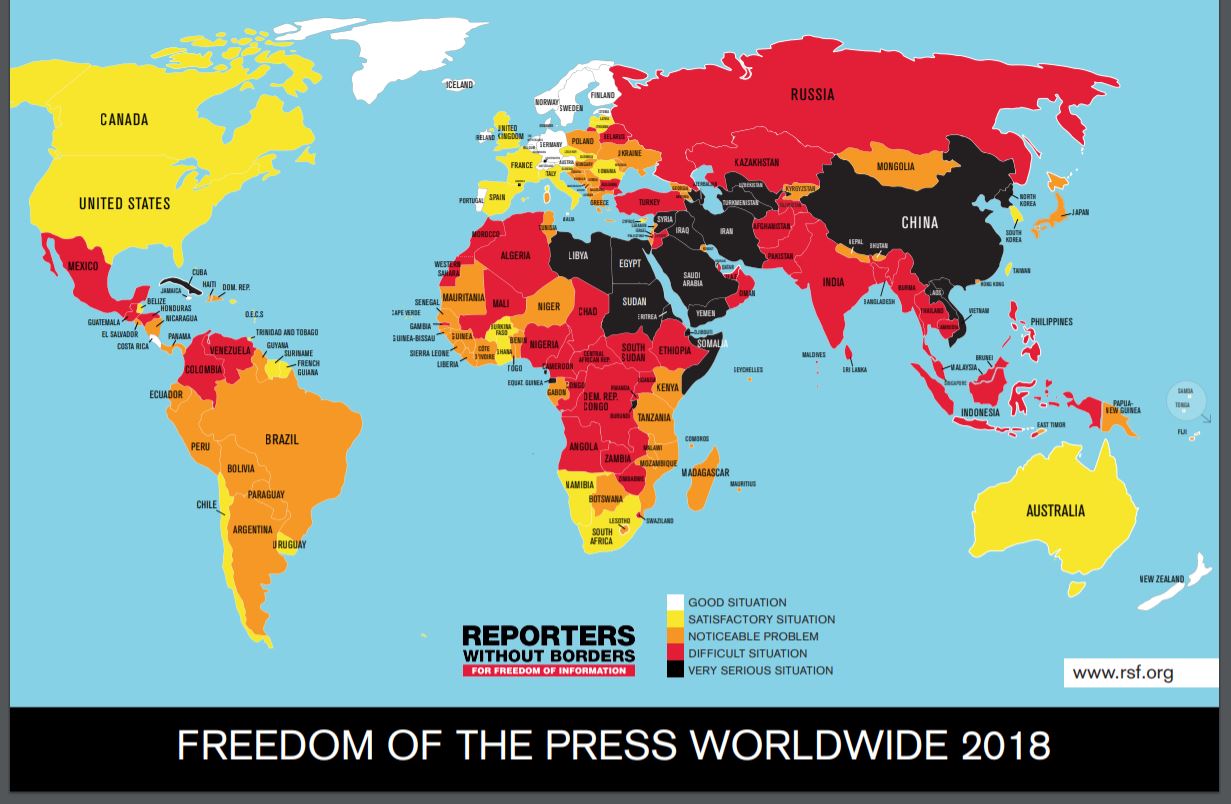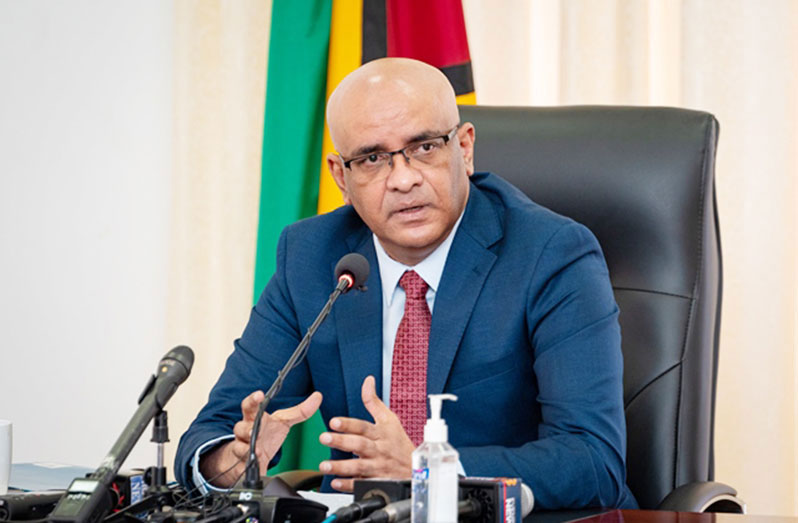Guyana has seen an improved ranking on the World Press Freedom Index of 2018, compiled by the Paris-based Reporters Without Borders (RSF), at a time when the global press freedom body says hatred of journalism threatens democracies.
Guyana is ranked 55 on this year’s index, compared to 60 last year. Though an improvement, the report lists Guyana among countries with a “noticeable problem.”
The highest ranked Caribbean country is Jamaica which was placed in sixth position. Also ahead of Guyana in the rankings is Suriname (21), Trinidad (39) and Belize (47).
Norway maintains the number one position and North Korean maintains its position at the bottom of the list.
The Index overall reflects growing animosity towards journalists, RSF said in releasing the report Wednesday.
“Hostility towards the media, openly encouraged by political leaders, and the efforts of authoritarian regimes to export their vision of journalism pose a threat to democracies,” RSF stated.
The Index reviews the levels of press freedom in 180 countries each year.
The report noted that hostility towards the media from political leaders is no longer limited to authoritarian countries.
“More and more democratically-elected leaders no longer see the media as part of democracy’s essential underpinning, but as an adversary to which they openly display their aversion,” the report noted.
It cites the example of the United States, which has fallen again in the Index (45) under Donald Trump, who has referred to reporters as “enemies of the people,” the term once used by Soviet dictator, Joseph Stalin.
While the 2018 Index shows a slight overall improvement in respect for press freedom in Latin America, RSF said this should not divert attention from the continuing problems of violence, impunity, and authoritarian policies towards journalists in many Latin American countries.
With enlightened media legislation and journalists enjoying a relatively high level of freedom, Costa Rica (10th) continues to be Latin America’s best-ranked country in 2018.
Cuba (unchanged at 172) continues year after year to be the Western Hemisphere’s worst-ranked country, with the Castro family-led regime maintaining its monopoly on news and information.
Venezuela’s six-place fall to 143 in the 2018 Index was the most significant decline in Latin America. The report noted that the authoritarian excesses of President Nicolás Maduro and his government continued to grow in 2017.
“Independent and opposition media and foreign reporters are constantly targeted by the Bolivarian police and intelligence services in an attempt to minimize coverage of the grave political and economic crisis that began in early 2016.
“Attacks on reporters during protests, arbitrary arrests (often followed by heavy-handed interrogation), destruction of equipment, and deportations of foreign journalists all continued in 2017,” the report stated.
Also in Venezuela, the report noted that State censorship increased with CONATEL, the telecommunications regulator, stripping many critical TV and radio stations of their broadcast frequencies while opposition print media were badly hit by orchestrated newsprint shortages.












